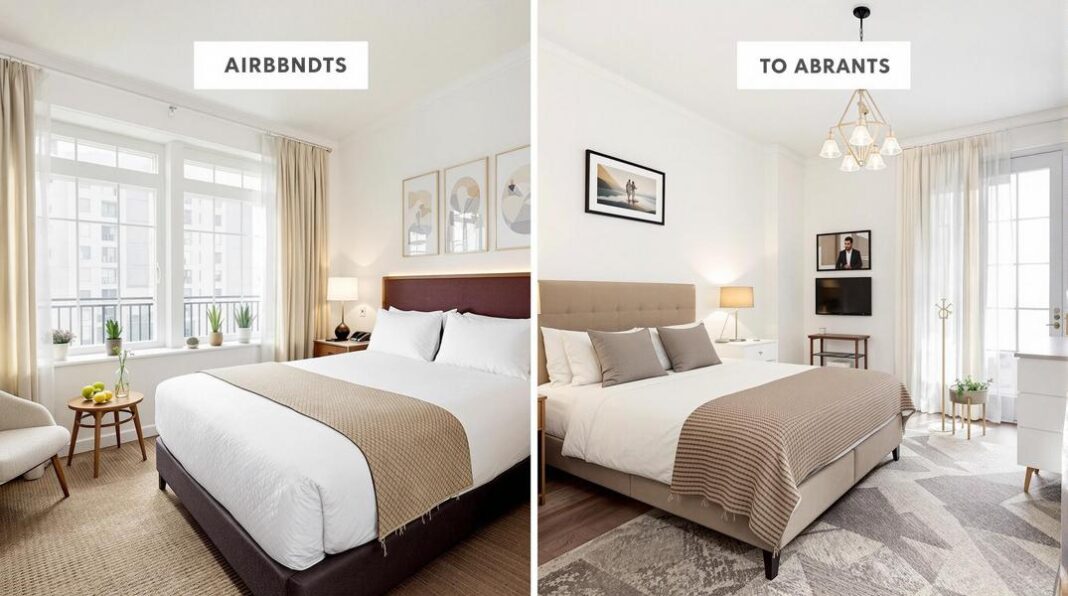Airbnb vs. Hotels: The Price Gap Widens in Major Cities
Hotels in large cities now cost 26.6% more per night than comparable rental properties, according to recent analysis. This growing price gap is reshaping how travelers choose accommodations for both short stays and extended trips.
The cost difference between traditional hotels and Airbnb rentals has become a crucial factor for budget-conscious travelers. While both options offer distinct advantages in terms of amenities, service, and experience, the financial implications often drive the final decision.
The Cost Equation
Airbnb accommodations generally offer a broader spectrum of price options compared to hotels, with the average cost being $137 per night, though this can vary based on location and amenities. This flexibility allows travelers to find options that better match their specific budget constraints.
The global average daily rate for a one-bedroom Airbnb is about $114, which is lower than the average hotel rate of approximately $140 per night. This difference becomes even more pronounced in major metropolitan areas.
For larger groups, the savings can be substantial. The average Airbnb for six people is 33% cheaper than booking three hotel rooms. This makes rental properties particularly attractive for family vacations or group getaways.
Quality and Experience Differences
Cost isn’t the only consideration for travelers. Hotels prioritize hospitality and guest experience with amenities like 24/7 customer service, professional staff, and consistent quality, contrasting with Airbnb’s more variable service levels.
The predictability of hotels offers peace of mind for many travelers. When booking a recognized hotel brand, guests generally know what to expect in terms of room quality, available services, and overall experience.
Airbnb properties, while often more affordable, can vary significantly in terms of quality and amenities. This inconsistency has led some travelers to return to hotels despite the higher cost.
Service Expectations
Hotels typically offer a range of services that Airbnb properties cannot match. Daily housekeeping, room service, concierge assistance, and on-site dining are standard at many hotels.
Airbnb rentals, while lacking these traditional hotel services, often provide amenities that hotels can’t match—like full kitchens, private outdoor spaces, and unique architectural features.
The check-in process also differs significantly between the two options. Hotel check-ins are standardized and staffed 24/7, while Airbnb check-ins may require coordination with hosts and can sometimes be less straightforward.
The Bottom Line
For budget-conscious travelers, particularly those staying for extended periods or traveling in groups, Airbnb continues to offer compelling value. The average seven-night Airbnb stay is 32% cheaper than a one-night stay, making long-term rentals more cost-effective.
But the decision isn’t always straightforward. As one industry expert noted, “There is growing dissatisfaction with Airbnb due to various issues like ‘nightmare hosts’ and lack of privacy,” pushing some travelers back toward traditional hotels despite the premium price.


